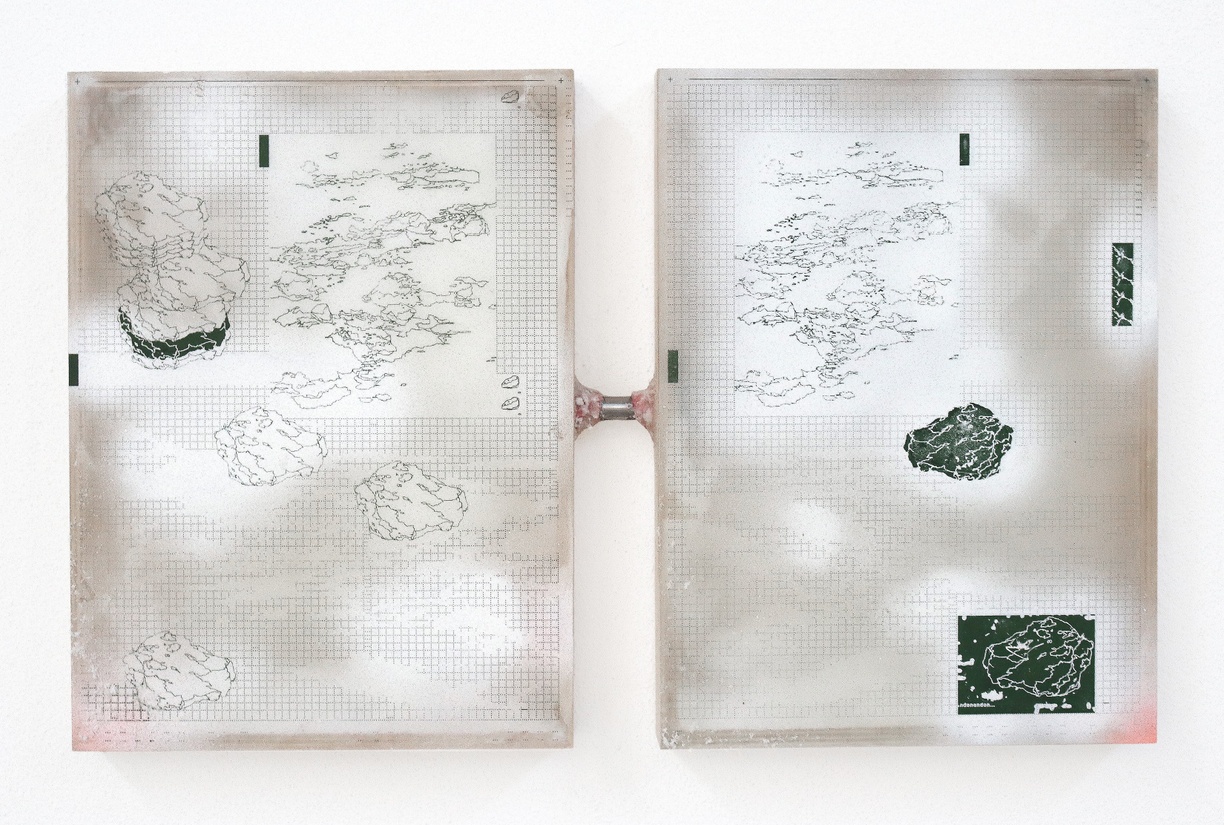
- Katherine C. M. Adams
Artists: Basel Abbas and Ruanne Abou-Rahme, Jia-Jen Lin, Christopher Meerdo, Naomi Nakazato, and Amina Ross
Boundary Monuments Dissolve features artists who employ digital-imaging techniques to unearth aesthetic and political turbulence within contested terrains. The project includes recent artworks by four artists and new work by the duo Basel Abbas and Ruanne Abou-Rahme. Registering seemingly immaterial forces within the terrains they picture, the exhibited works also act as atmospheric media in their own right.
Today, geopolitical ideas of the global have yielded to climate-inflected ideas of the planetary. In turn, questions of collective and embodied space have broadened from concerns about land-based territoriality to more immaterial and slippery conceptions of terrain. Atmosphere and airspace have become political targets. Computer vision unmoors sight from the human eye, and is cast into the air by drones and other devices. Boundary Monuments Dissolve explores how, in this era of planetary space and sophisticated computational techniques, an atmospheric sensibility enables us to re-vision spatial experience in our new post-global reality.
In the featured works, artists embed digital images amid atmospheres of real terrains, overwriting conventional models of site. In works by Amina Ross, pristine three-dimensional renderings leak into panoramic cellphone footage, and the eye itself becomes a place to be surveyed. Christopher Meerdo’s White Hot (2017)—exhibited here for the first time in the United States—uses sculptural deconstruction of sensitive footage to cloud the transmission of militarized imaging. In other works, speculative mappings and digital drift enable the crossing of territories normally fragmented by harsh geopolitics.
In land surveying, a “boundary monument” is a material object placed alongside a natural or geopolitical border to signify the change in terrain. By occupying the fluid space of atmosphere, the exhibition dissolves boundary monuments. In doing so, it attends to the territorial porousness at work within contemporary spatial politics.
Digital images have historically been categorized either as dry formats, freed from the fluid chemical exposures of analog photography, or as liquid formats that circulate endlessly through global networks. Boundary Monuments Dissolve asks whether there might not be a third, atmospheric dimension of digital images: one that captures the incomputable and affective alongside the concrete realities of today’s expanded spatial field.
With support from the OSUN Center for Human Rights & the Arts at Bard.













